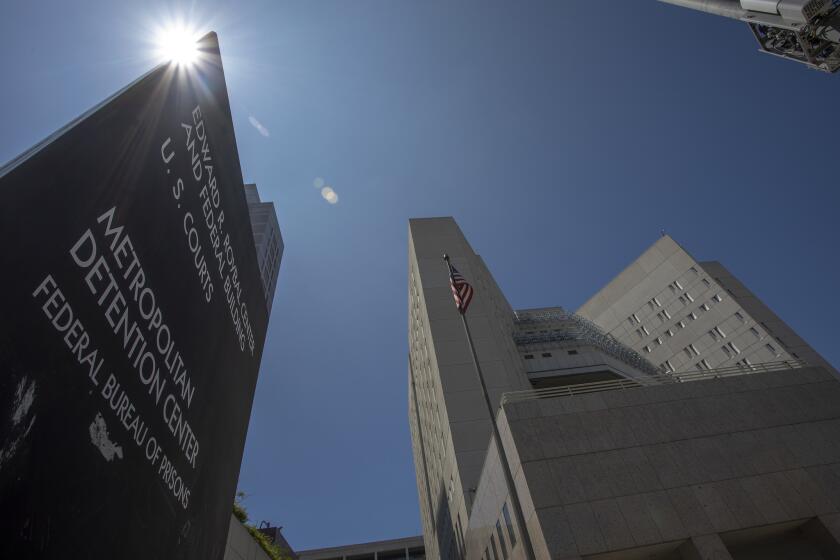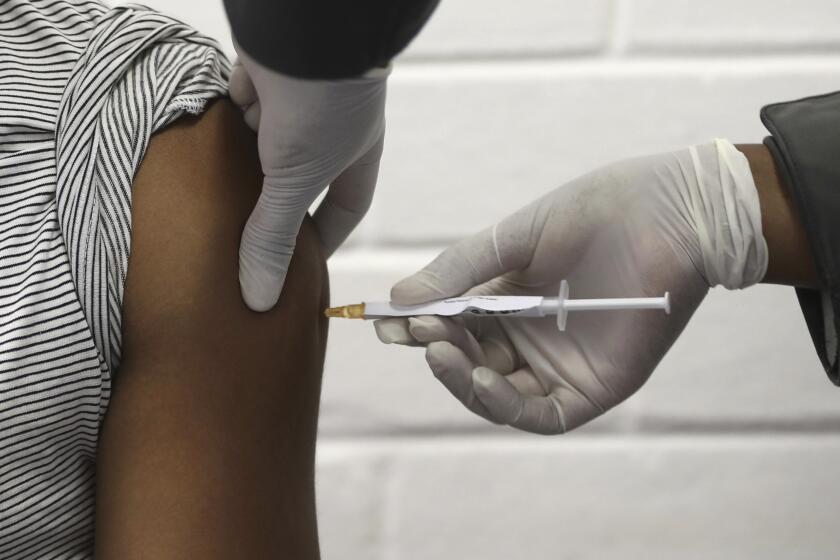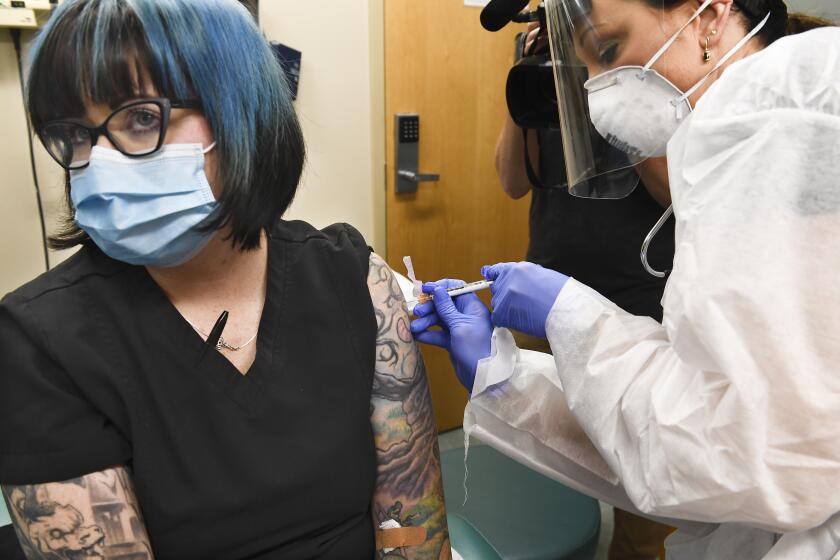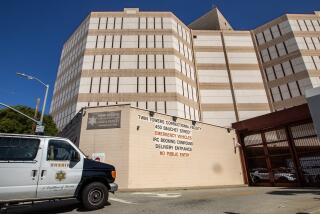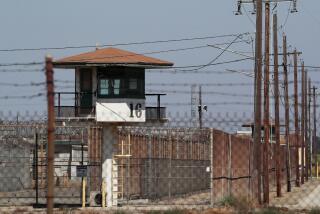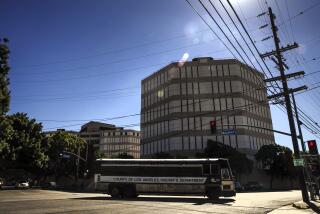Federal prisons among first in line for COVID-19 vaccines — with staff as priority
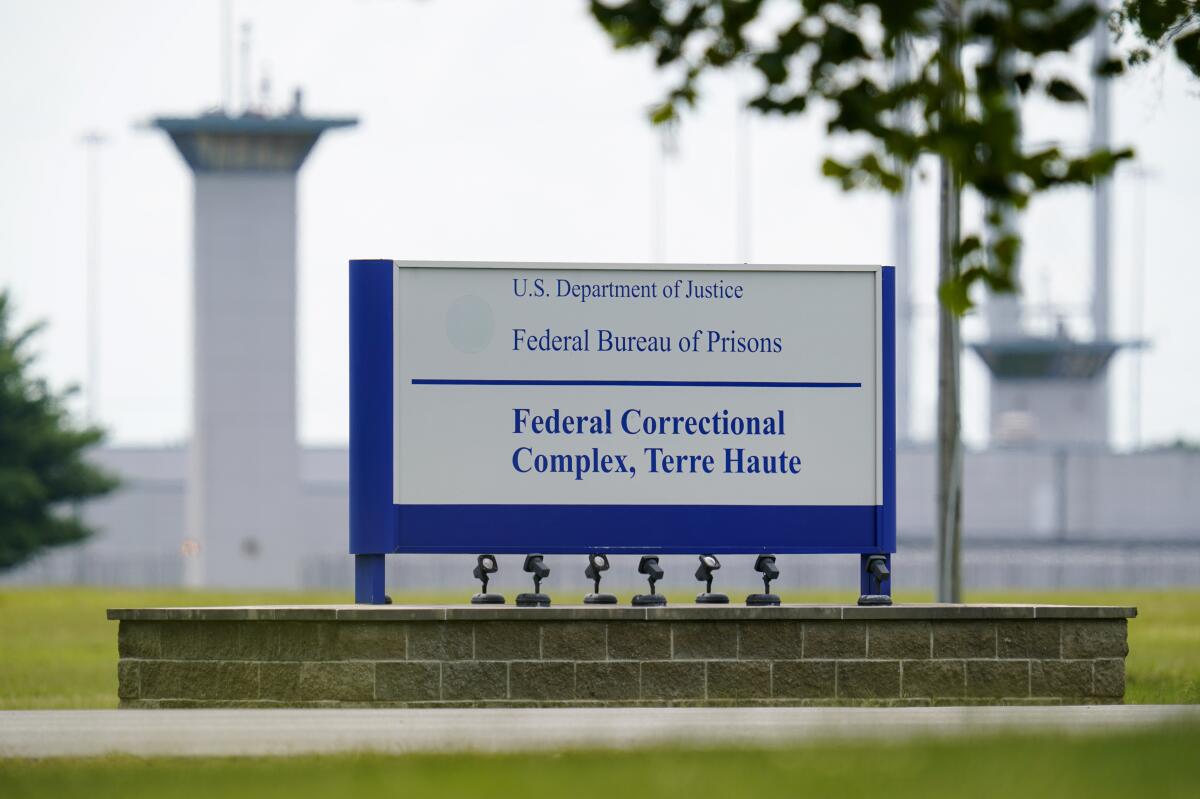
The federal prison system will be among the first government agencies to receive the COVID-19 vaccine, though initial allotments will be given to staff and not to inmates, even though infected prisoners vastly outnumber sickened staff, according to documents obtained by the Associated Press.
Officials at the federal Bureau of Prisons have been instructing wardens and other staff members to prepare to receive the vaccine within weeks, according to people familiar with the matter. The people could not discuss the matter publicly and spoke on condition of anonymity.
The internal Bureau of Prisons documents, obtained by the AP, say that initial allotments of the vaccine “will be reserved for staff.” It was not immediately clear how many doses would be made available to the bureau.
As of Monday, there were 3,624 federal inmates and 1,225 Bureau of Prisons staff members who have tested positive for the coronavirus.
Since the first case was reported in March, 18,467 inmates and 1,736 staff have recovered from COVID-19. So far, 141 federal inmates and two staff members have died.
There have been more than 12 million cases in the U.S. and over 257,000 deaths. But prisons are a particular concern because social distancing is virtually nonexistent behind bars, with inmates sleeping in close quarters and sharing bathrooms. In the early days of the pandemic, prisoners and staff members said the Bureau of Prisons had run short of even the most basic supplies, like soap.
More than 200 inmates at a federal detention center in Los Angeles have contracted the coronavirus, forcing prison officials to lock down the facility.
The internal Bureau of Prisons records obtained by the AP also detail how the agency has been working with the Centers for Disease Control and Prevention and the Trump administration’s vaccine program, known as Operation Warp Speed, to secure the vaccines. The documents say the administration’s initial distribution will include the federal prison system.
Health officials have been warning for more than a decade about the dangers of epidemics for those incarcerated.
Nearly 25% of all inmate cases and 30% of the staff cases have been reported within just the last month. Some staff members said they were apprehensive about receiving the COVID-19 vaccine because of what they feared was a lack of long-term testing and possible side effects.
Although infection rates are also rising in state prisons, any plans for administering doses in those facilities would be handled by the states.
Drugmaker AstraZeneca said late-stage trials showed its COVID-19 vaccine is up to 90% effective, buoying the prospects of a relatively cheap, easy-to-store product.
Government guidance has suggested that states should be ready to receive initial doses of a vaccine within weeks, although officials have said initial supplies would be scarce and rationed. While healthcare workers may be among those to receive initial doses, Dr. Anthony Fauci, the government’s leading infectious-disease expert, has said the general population could likely expect first doses starting in April.
No vaccine has been approved by the Federal Drug Administration yet — a necessary step before any doses can be delivered. Pfizer formally asked U.S. regulators Friday to allow emergency use of its COVID-19 vaccine, starting the clock on a process that could bring limited first shots as early as next month.
Advocates say the federal government should be doing more to ensure vulnerable, at-risk inmates have access to the vaccine as soon as possible.
“If true, it’s a disgrace,” David Patton, the head of the federal defender office in New York, said of the Bureau of Prisons plan. “Prisoners are among the very highest-risk groups for contracting COVID-19. The conditions of confinement make social distancing and proper hygiene and sanitation nearly impossible. The government should certainly prioritize prison staff, but to not also prioritize the people incarcerated is irresponsible and inhumane.”
There are still many unknowns when it comes to the pandemic, but the early signs of success for two experimental COVID-19 vaccines make a few things clear.
The Bureau of Prisons has been accused of missteps and scattershot policies since the virus reached the U.S. earlier this year.
An inspector general’s office report last week concluded that at one prison complex in Louisiana, which emerged as an early coronavirus hot spot, prison officials had failed to comply with federal health guidance and left infected inmates in their housing units for a week without being isolated. Staff members, advocates and inmates at other prisons around the country described a hodgepodge of coronavirus policies.
A spokesman for the Justice Department did not immediately respond to a request for comment.
More to Read
Start your day right
Sign up for Essential California for news, features and recommendations from the L.A. Times and beyond in your inbox six days a week.
You may occasionally receive promotional content from the Los Angeles Times.
